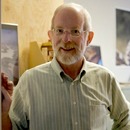Page 1 • (12,921 results in 0.086 seconds)
-
Students completing the B.A. degree in Earth Science are recommended to take a departmentally approved field camp from another college or university.
Geologic Field ExperienceStudents completing the B.A. degree in Earth Science are recommended to take a departmentally approved field camp from another college or university. Students would normally take this during the summer, after their junior year or after their senior year depending upon their level of preparation. This field experience may be a traditional field geology course or a field based course in Hydrology, Environmental Geology or Geophysics, etc. Students must have approval of
-
Some employees at PLU, primarily those who work outdoors, in food service, and environmental service positions may be exposed to temperatures that cause heat or cold stress.
monitor their own work environment for temperature risks and take appropriate action to protect themselves. 6.0 Cold StressThere are a number of methods to protect against cold stress. Supervisors should use a combination of methods, including training, to manage the effects of cold stress on employees. 6.1 Training Supervisors should inform employees of cold stress hazards when employees work in air temperatures below 41ºF.² Employees exposed to cold stress shall be trained in the following
-
What To Do Before, During, and After an Earthquake (FEMA) (pdf) view download
-
Information and Training PLU uses Vector LMS to provide general training on the hazards of wildfire smoke to all staff (Wildfire Smoke Safety), assigned at the start of their employment and annually thereafter. This training includes informing supervisors of their responsibilities under this Rule. Additionally, smoke and air quality information will be posted seasonally in break areas used by the most at-risk employees. This information provides a reminder of potential effects of higher AQI
-

work with a limited knowledge of schools,” she said. The master’s program at PLU “got me to buy into the reason why I’m doing this. It taught me the skills to be a great educator, and a deep-thinking, reflective educator.” Cook believes education is a pathway out of poverty for her students. “It’s so much more than learning algebra or language arts,” she said. “Education is building humans.” Evelyn Cook Principal PrepIntensive PLU program prepares future principals. Alternative Routes to
-
"The Hazards of Digital Literacy" (pdf) view download
-

Professor Emeritus | Earth Science | foleyd@plu.edu | 253-535-7568
Duncan Foley Professor Emeritus Phone: 253-535-7568 Email: foleyd@plu.edu Professional Education Ph.D., Geology, The Ohio State University, 1978 M.S., Geology, The Ohio State University, 1973 B.A., Geology, Antioch College, 1971 Areas of Emphasis or Expertise Environmental Geology Hydrogeology Yellowstone and its Geysers Geothermal Systems Humans and Geologic Hazards Geoscience Education Books Investigations in Environmental Geology (3rd Edition) co-authored with Garry D. McKenzie and Russell O
Area of Emphasis/Expertise -
The PLU Department of Geosciences prepares students for a lifetime of scientific learning, informed citizenship, and earth stewardship through critical thinking and engagement in the scientific
. Provide students with opportunities to work with faculty in research within the local and greater scientific community. Support the continuing professional development of faculty as educators and researchers in our local community as well as in the larger scientific community. Provide students and the community with opportunities that increase awareness of the relationship between geologic processes and societal issues. Support student learning by providing high quality educational experiences about
-
Search and Rescue Procedure (pdf) view download
-
Global society is based on geology. Our energy resources, construction and manufacturing materials, food and agricultural products, and building sites all depend on the geologic environment.
Why Study Earth Science?Global society is based on geology. Our energy resources, construction and manufacturing materials, food and agricultural products, and building sites all depend on the geologic environment. Dramatic geological processes such as earthquakes, volcanic eruptions or floods impact many areas of the world. Less dramatic but ongoing processes such as rivers, wind, soil erosion and glacial movement sculpt the landscape and change how humans use the Earth’s surface. Geology
Do you have any feedback for us? If so, feel free to use our Feedback Form.


